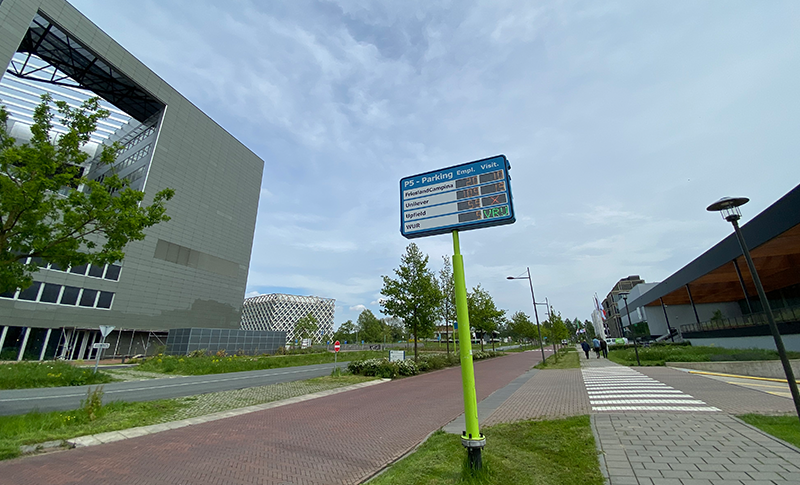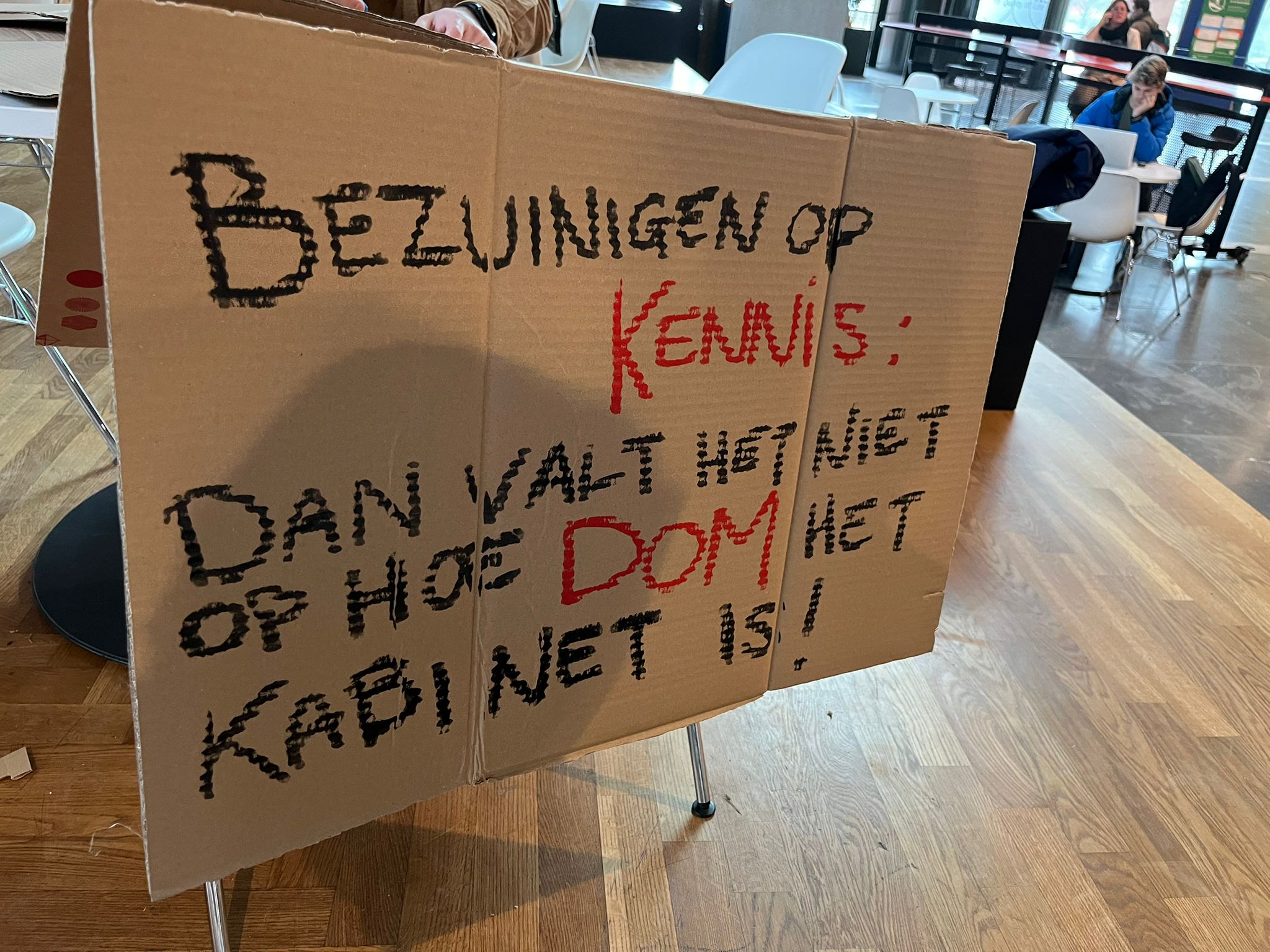WUR is an extreme example of a corporate university, argues associate professor Jeroen Candel. That has got to change, and words can help. Changing the corporate language we use is the starting point for a new vision on what the university stands for.
‘Corporate communication’, ‘the client experience’, ‘business unit’, ‘corporate social responsibility’, ‘value creation’, ‘KPIs: key performance indicators’… These are just a few of the terms I encounter in my inbox and on the intranet on a typical workday.
Our language is the reflection of ourselves, a language is an exact reflection of the character and growth of its speakers,’ said the Mexican-American civil rights activist César Chávez. From this perspective, our university has developed into a textbook example of a ‘corporate university’. An excess of jargon and slogans from the business world is evidence of that.
WUR is not alone in this. The New Public Management (NPM) thinking that grew out of neoliberal economics has become the dominant paradigm almost throughout the public and semi-public sector. NPM thinkers have been declaring since the 1980s that ‘clunky, slow’ government organizations should take a leaf out of the business world’s book, mainly by prioritizing measurable goals, efficiency, customer satisfaction, market forces and monitoring and control
The frames and the language we use are not innocuous
In the academic world, that led to the rise of the corporate university: a model in which administrators and managers run universities with an emphasis on efficiency, market orientation and profit. And often at the expense of traditional academic values such as academic freedom, broad participation in decision-making and a liberal education. In the management of a corporate university, the focus lies on making money, cutting costs, and serving the market and the interests of industry.
Although WUR is no exception, our university is an extreme example compared with most other Dutch universities. The business-minded approach was a good fit with the already highly applied focus of many of the academic disciplines Wageningen is home to. And demand from the market dictated the direction of its work. It is therefore no surprise that our campus has become more and more of a business park. The can-do mentality found here also lent itself to a more commercial management approach in which looking for effective, usually technical solutions to urgent societal questions was the driving force behind the engineering mentality. Academic debate and critical reflection have often been seen by managers and publicity officers as an annoying necessary evil when trying to formulate clear-cut and broadly supported paths to solutions. Not to mention the idea of allowing room for public criticism of your own organization. ‘The government and the general public expect answers from WUR,’ was what I was told on more than one occasion when I had expressed fundamental criticism of the agricultural and food system in the media. Yet the value of science lies precisely in the power of debate amongst scientists, critical reflection and even normative theory. (Did anyone ever ask Spinoza for clear-cut solutions?) And the same certainly goes for the social sciences and the humanities too.
Don’t get me wrong: almost every colleague I know has the interests of WUR and contributing to a better world at heart. That is what makes our university such a great and unique workplace. And yet the frames and the language we use are not innocuous. They are institutionalized in the practices, procedures and systems that shape our day-to-day work. Take the emphasis on individual excellence (the KPIs in the tenure track) and the pressure that goes with that; the proliferation of monitoring and control systems that are increasingly restricting our professional room for manoeuvre (Osiris!); the excessive emphasis on economic value creation and the ubiquitous market thinking in which groups ‘purchase services’ within their own organization (leading to massive cash flows circulating within WUR) and must compete with each other to be allowed to offer courses in our degree programmes. Every one of these processes and developments undermines the original raison d’être and the societal role of academia.
Let’s stop playing at being a private sector company and reinvent the Academy
While neoliberalism is increasingly being declared economically and morally bankrupt, and while in Dutch academia movements like WOinActie argue for a change of course, the corporate culture within WUR is proving extremely persistent. It is high time we stop taking that culture for granted and have more discussion about what our core values are as an academic community, and how we can make them central again. Let’s start by subjecting our language use to critical scrutiny. Try saying ‘colleague’ instead of ‘client’, ‘valuable research and education’ instead of ‘valorization’, and ‘science communication’ instead of ‘corporate communication’. Let’s stop playing at being a private sector company and reinvent the Academy. Or should that be: Let’s recalibrate our corporate identity and organize a strategic repositioning?’
Jeroen Candel (34) is an associate professor in the Public Administration and Policy chair group. In his teaching and research, he seeks answers to the question of how governments can steer food systems towards more sustainable, healthier and fairer outcomes.





To-the-point and clear. Language matters. Another case in point: in Osiris, students are not students but “cases”. Mindboggling. Isn’t education aimed students, rather than at cases or clients? These same students think that they study at Wageningen University and Research. I scratched out “and Research” from the cover page of BSc and MSc theses on countless occasions. In the mobility discussion, WUR keeps on prioritizing cars – for the sake of clients and corporate businesses on campus – over future-proof public transport, walking and cycling. “Let’s stop playing at being a private sector company and reinvent the Academy” could also be re-written as “Let’s separate WU from WR again”.
Amen! Totally agree.
I enjoy the tension between academic freedom and the drive for impact which in reality corresponds with external funding and thus compromisable interests. Tricky area but exciting. Things change though when freedom, and space, gets restricted by bosses who dictate communication and take over your job, or your contacts,, when getting succesful to start dominating the play field, shooting empty bullets. Yes, being free again to achieve true impact is what the best University should build on.